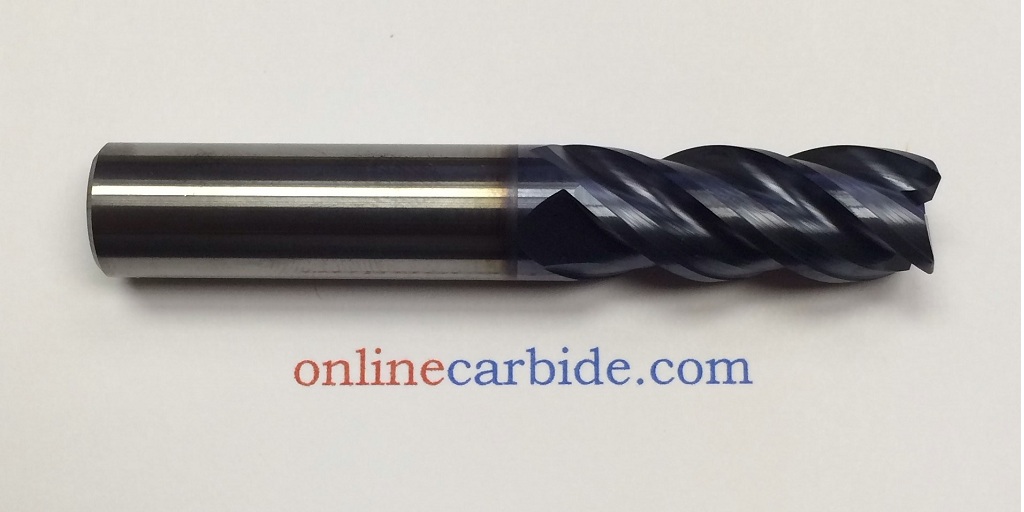Modern manufacturing and CNC machines go hand in hand today. Computer-coded toolpaths revolutionized subtractive machining in ways nobody anticipated, giving machinists the ability to manufacture incredibly customized parts with outstanding degrees of accuracy and tremendous speeds.
As this potential was being unlocked, the need for tools that could withstand ever-higher speeds drove manufacturers to look into super materials.
Steel tools are being phased out in many industries as it imposes severe limitations on what workshops can do. Carbide tools opened up a new world of possibilities as they can take a lot of punishment in the form of compressive force and heat without batting an eye. However, it is still bound by the laws of physics.
Here is where special coatings come into play. TiAlN coated end mills are created to give your carbide tools an efficient friction coefficient while increasing heat refraction. In other words, if you want your mills to remove more material and last longer, you need TiAlN coated end mills.
Super Coatings
Before 2010, many cutting tool manufacturers used Tinite or Titanium nitride to improve the substrate. This ceramic composite is extremely hard
An extremely thin coating, applied by means of physical vapor deposition methods, drastically increases the life of tools. On average, a treated tool would increase its durability by a factor of three, while also retaining its sharpness. However, intense oxidation processes start between 500 °C and 600 °C for TiN, which means that tools could only be driven so fast.
How Do TiAlN Coated End Mills Work?
It was later discovered that adding aluminum to Tinite would improve the material’s hardness and temperature refraction properties even more. The first noticeable improvement over regular titanium nitride was an increased hardness. Titanium aluminum nitride is considerably harder, measuring up to 2800 on the Vickers scale, compared to just 2300 measured in titanium nitride.
The composite material also has increased temperature tolerance, with an oxidation process starting at 800 °C. Moreover, this oxidation process is no longer detrimental to the tool´s durability. In fact, TiAlN coated end mills need to reach high temperatures and speeds as the oxidation process forms a protective layer of aluminum that reduces friction and resists further oxidation. This thin layer will, of course, be eroded by the cutting process. However, if high temperatures remain constant, new layers of aluminum will continue to be formed, keeping your tool in mint condition even during aggressive cuts.
An additional benefit of TiAlN coated end mills is that the coat efficiently sticks to its substrate, forming incredibly strong molecular bonds that anchor the coating to the tool and prevent it from chipping away. The material wraps the substrate in a way that perfectly reproduces the tool surface, eliminating the risks of buildup along the edges and keeping its original sharpness.
For those worried about environmental impact, the process of applying TiAlN coating is completely environmentally friendly. This is especially true if your tools are manufactured in America. Physical vapor deposition is the process used to create TiAlN coated end mills. This method vaporizes the material and recondenses it into thin films that wrap cutting tools enclosed in extremely controlled environments that comply with the highest production and environmental standards.
Of course, you need suppliers who can provide high-quality tools that can not only guarantee maximum performance, but also competitive prices. Online Carbide is an American cutting tool manufacturer dedicated to designing and crafting high-end tools for a wide variety of applications. Visit their website to find out more about their solid carbide and TiAlN coated end mills, and take advantage of their manufacturer direct prices.
For more information about Variable Flute End Mills and Carbide End Mill Set Please visit: Online Carbide.
Hi, I am Adam Smith, Admin Of TechSketcher, Creative blogger and Digital Marketer.
